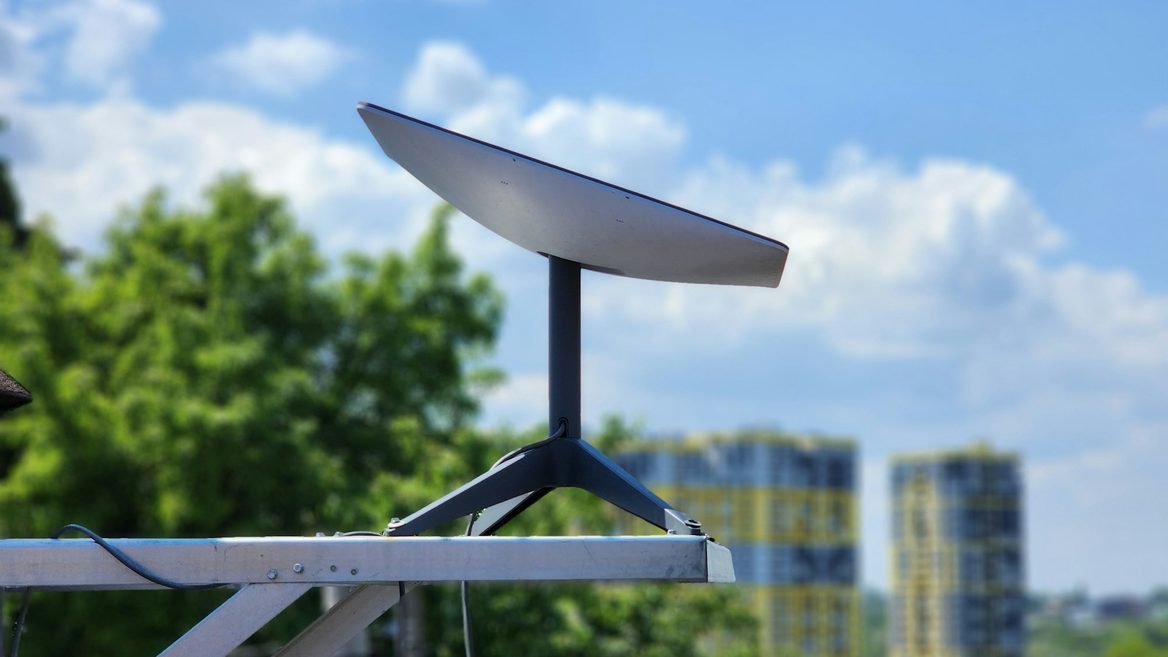Cyber expert Kostiantyn Korsun analyzed what alternatives exist in the world if Elon Musk’s Starlink suddenly becomes unavailable to the Ukrainian military. Here are 4 options from the British, French, Swedish, and even Ukrainians.
HughesNet
The American satellite Internet operator offers tariff plans with download speeds of up to 100 Mbps for prices ranging from $90 to $110 per month with a high-speed traffic limit of up to 200 GB per month.
The upload speed is no more than 5 Mbps.
Signal delay 500-700 ms.
OneWeb
A British company that, together with the French Eutelsat, provides satellite Internet services. In April 2024, Kyivstar announced the testing of OneWeb technologies in Ukraine.
Service cost: about $1,400 per month for unlimited access with a download speed of 50 Mbps.
The service is not available to individuals, only to organizations.
It has about 700 satellites at an altitude of ~1200 km, which provides a more or less acceptable delay of 30-50ms.
Satcube
A Swedish company that transferred about 100 of its satellite terminals to Ukraine in August 2023.
Tariffs: a package with 1 GB of traffic costs $110 per month, 50 GB — $3000/month, and the maximum package with 1000 GB — $5750/month.
The terminals are compact and portable, and can be deployed quickly. But the equipment set costs about $20,000.
Signal delay 600-700 ms (geostationary).
Tooway (Viasat)
Download speed up to 50 Mbps, upload up to 6 Mbps. Signal delay 600-700 ms due to geostationary satellites at an altitude of about 36,000 km.
In Ukraine, services are provided by the company «Datagroup».
It’s too early to rejoice.
And these are far from all the available alternatives, writes Korsun. The main problem, according to him, (in particular, for the Armed Forces of Ukraine) is not so much the cost of data transmission services, but the availability of the service, as well as the speed and stability of data transmission. And these parameters directly depend on the number of satellites and at what altitude they fly. More satellites = greater availability/stability. Lower satellite altitude = faster data transmission.
Here are the shortcomings the expert highlighted in each system.
The Swedish Satcube has ridiculous tariffs and sky-high equipment costs: you’ll be tired of having to unsubscribe for the loss of such equipment after «arrival».
Excessive ping on HughesNet, Satcube, and Tooway significantly complicates some combat missions, including engaging the enemy with FPV drones, conducting online reconnaissance, and making combat decisions in real time. It is difficult to carry excessively heavy terminals in a backpack through a conventional Kill Zone, where any equipment is destroyed by drones in a few minutes.
And again, the number of satellites: for example, OneWeb has about 700, while Starlink has over 8,000, and they fly low — at an altitude of about 550 km — which directly affects signal stability and ping time. And this is critically important in modern high-speed combat and in conditions of intensive use of electronic warfare and electronic warfare (EW) by the enemy.
Conclusions
There is an alternative to Starlink. However, it is not equivalent.
«The dry terms ‘stability-availability’ and ‘number/height of satellites in orbit’ literally mean whether your soldiers and officers will be able to complete a combat mission. And whether they will even remain alive. Therefore, I would not rush to spit on Starlink and point a finger at a half-crazy techno-oligarch,» says Korsun.
Starlink, according to him, was aimed at global strategic leadership from the very beginning of the project. «And it doesn’t matter that it won’t bring profit for the first 10-15 years: the USA is a country rich enough to invest in long-term strategies. But when the years and investments work, it will actually be a world monopoly. And then truly colossal superprofits will begin, which will many times compensate for all the long years of waiting. This is called „long-term planning“, which is not for fools/fools,» the expert adds.
He does not believe that the operation of Starlink terminals in Ukraine will be stopped — this is still a business for Musk, real money. «The recent case with Carlos Slim is illustrative, when as a result of his offensive tweet, Ilonchyk became poorer by $7 billion. But over the past three years, a lot has happened that most considered unlikely. Therefore, it is always useful to have a „plan B“. And even better — a „plan C“,» the specialist believes.
